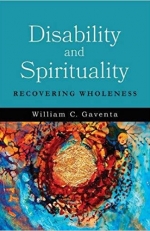
Disability and spirituality have traditionally been understood as two distinct spheres: disability is physical and thus belongs to health care professionals, while spirituality is religious and belongs to the church, synagogue, or mosque and their theologians, clergy, rabbis, and imams. This division leads to stunted theoretical understanding, limited collaboration, and segregated practices, all of which contribute to a lack of capacity to see people with disabilities as whole human beings and full members of a diverse human family.
Contesting the assumptions that separate disability and spirituality, William Gaventa argues for the integration of these two worlds. As Gaventa shows, the quest to understand disability inevitably leads from historical and scientific models into the world of spirituality―to the ways that values, attitudes, and beliefs shape our understanding of the meaning of disability. The reverse is also true. The path to understanding spirituality is a journey that leads to disability―to experiences of limitation and vulnerability, where the core questions of what it means to be human are often starkly and profoundly clear.
In Disability and Spirituality Gaventa constructs this whole and human path before turning to examine spirituality in the lives of those individuals with disabilities, their families and those providing care, their friends and extended relationships, and finally the communities to which we all belong. At each point Gaventa shows that disability and spirituality are part of one another from the very beginning of creation. Recovering wholeness encompasses their reunion―a cohesion that changes our vision and enables us to everyone as fully human.
Back